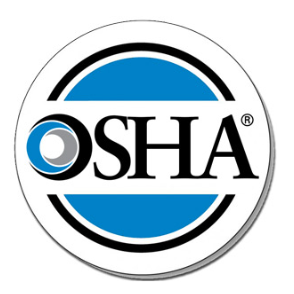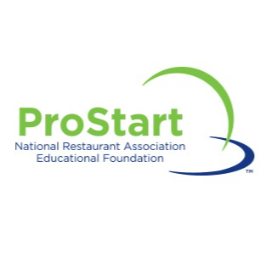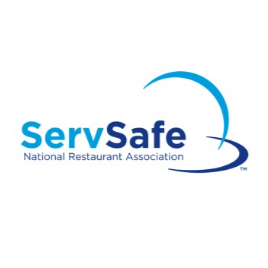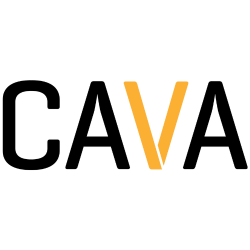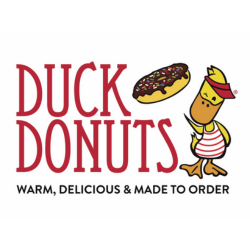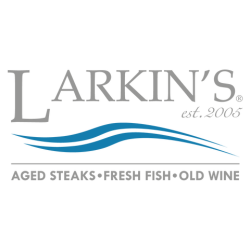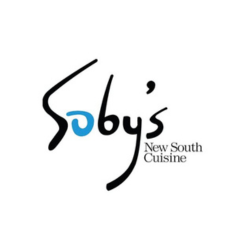Culinary Arts
(Dual Enrollment with Greenville Tech)
Chef Bill Twaler
There is no better place than South Carolina to prepare for a career in hospitality. With more than 29 million visitors each year, the state’s cultural and natural attractions support a thriving food and tourism industry. Culinary professionals are in demand, and this program gives students the skills and experience needed to enter the field with confidence.
Our Culinary Arts program is part of the South Carolina Hospitality & Tourism Career Cluster and is offered as a dual enrollment class with Greenville Technical College, allowing students to earn both high school and college credit. Students train in food production while developing professionalism and proficiency in cooking, cost control, nutrition, and sanitation. The curriculum blends culinary arts with management concepts, giving students an advantage over their peers in the food industry.
What you’ll do:
- Train in professional food production and service
- Develop skills in cooking, baking, nutrition, and sanitation
- Learn cost control and menu planning
- Practice creativity, leadership, and discipline in a lab kitchen setting
Certifications you can earn:
- Tier 1: OSHA-10, ServSafe Food Handler
- Tier 2: YouScience Event Planning & Management, Hospitality & Tourism, and Lodging & Recreation
- Tier 3: ServSafe Food Manager, ProStart START Restaurant Server, Breakfast Attendant, and Kitchen Cook
Students earn two high school credits each semester and up to eight credits over the two-year program. Credits count as electives toward South Carolina graduation requirements, and one credit may fulfill the CATE/Foreign Language requirement.
Visit us: Are you interested in meeting Chef Twaler and touring our Culinary Arts lab? After-school tours for prospective students and parents are available on Tuesdays, Wednesdays, and Thursdays in December, January, and February. We’d love to show you the program and answer any questions you may have.
Year One: Building the Foundation
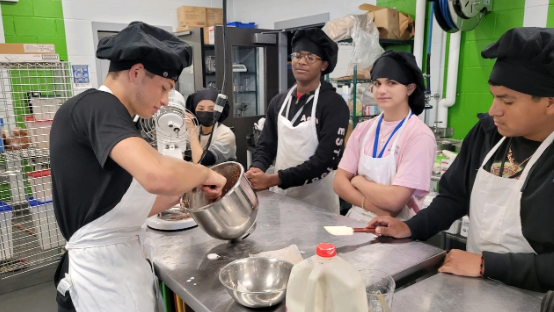
Culinary Arts 1 & 2 — (AM Session at Enoree)
1st Semester - Cul155 Sanitation (Dual Enrollment with Greenville Tech)
Year one of the Culinary Arts program introduces students to the foundations of professional cooking while building the discipline, safety habits, and creativity needed for success. Open to rising 10th and 11th graders, students attend Enoree Career Center during the morning session as part of their two-year commitment. This dual enrollment program with Greenville Technical College allows students to earn college credit through the Culinary Institute of the Carolinas while completing high school coursework. Training emphasizes sanitation, knife skills, and the fundamentals of cooking and baking. Students also learn food production, nutrition, and cost control in a professional lab kitchen environment.
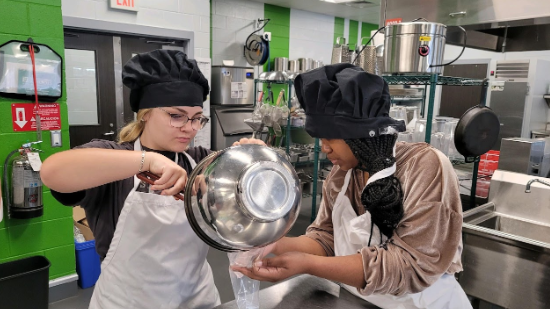
As students advance through Culinary Arts 2, they expand their cooking skills through hands-on projects that simulate restaurant and catering operations. Instruction introduces menu planning, plating, and presentation, as well as customer service skills, while continuing to emphasize teamwork and time management in a fast-paced setting. Students also begin preparing for the ServSafe Food Handler certification, a valuable credential in the hospitality industry.
By the end of year one, students will have gained a solid foundation in the culinary arts, completed a significant number of training hours toward certification, and developed the confidence to apply their skills in more advanced cooking and management scenarios during year two of the program.
Year Two: Advancing the Skills
Culinary Arts 3 & 4 — (PM Session at Enoree)
Year two of the Culinary Arts program builds on the foundations from year one and challenges students to refine their skills at a professional level. Students attend Enoree Career Center during the afternoon session as part of their two-year commitment, with the pace and expectations increasing significantly. Training emphasizes advanced cooking and baking techniques, menu planning, cost analysis, and leadership in the kitchen. Students practice preparing multi-course meals, developing timing and presentation skills, and managing the pressures of a fast-paced kitchen environment. Instruction also includes inventory management, kitchen organization, and teamwork, all designed to mirror professional food service operations and prepare students to perform with confidence and consistency.
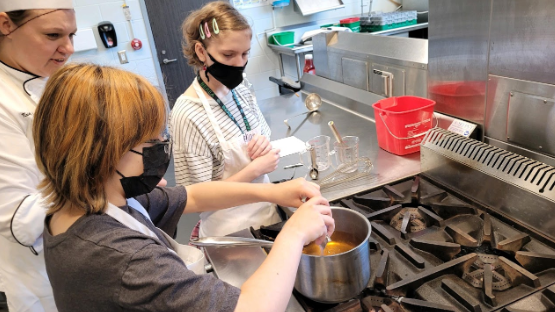
As students progress through Culinary Arts 3 and 4, the focus shifts to creativity, efficiency, and mastery of advanced culinary skills. Students explore international cuisine, advanced baking and pastry techniques, and the business aspects of food service, including purchasing, inventory management, and customer service. Instruction stresses teamwork, professionalism, and the discipline required to succeed in the hospitality industry.
By the end of year two, students will be prepared to earn ProStart certifications. Graduates leave the program with industry-recognized credentials, advanced technical skills, and the confidence to pursue opportunities in restaurants, catering, hotels, further education in culinary and hospitality programs, or open their own business.
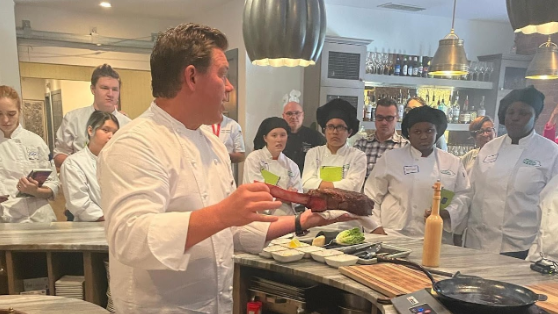
Career Opportunities
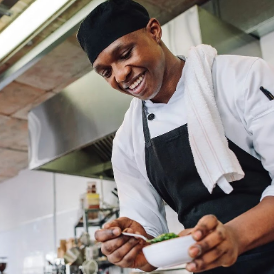
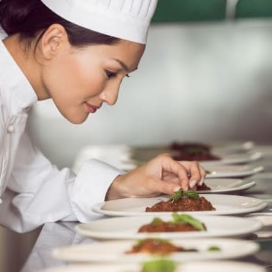
Pastry Chef
Pastry chefs are responsible for all baking aspects of kitchens and restaurants. They prepare and deliver cakes, cookies, pies, and other bread and meal-based components. Pastry chefs also perform administrative tasks such as preparing budgets and ordering supplies for pastry making.
Salary - $44,879 per year on average, or $21.58 per hour
Sous Chef
A head chef is a professional cook who deals with directing and controlling food preparations and approval before they are served. Head chefs are generally responsible for everything in the employer's kitchen or restaurant. Not only will you be required to create menu items, but you will also coordinate and monitor the activities of other cooks.
Salary- $45,470 per year on average, or $21.86 per hour
Executive Chef
Every dish that comes out of the kitchen is the responsibility of an executive chef. You can be assured that whatever you're currently putting in your mouth was given the green light from the executive chef. That's because they have a hand in all the decisions regarding food in a kitchen. From the quality of the food to making sure regulations are being met to coming up with new and improved recipes, the executive chef has a hand in all major food decisions.
Salary - $59,416 per year on average, or $28.57 per hour
Job Skills & Requirements
Each skill and trade requires a specific set of skills needed to master the content and job tasks. Below are a few critical skills and requirements needed to succeed in the program and throughout a career in this field.
- Ability to Handle Pressure: The kitchen can be a high-stress environment where time and accuracy of orders matter. Customers will want quality meals prepared quickly
- Attention to Detail: Orders and instructions will come quickly, and the ability to make fast-paced decisions is critical.
- Verbal Communication: Regardless of the culinary role you decide to pursue, communication skills will be important, as they can help you collaborate with other members of the kitchen staff. They also allow you to take direction from head chefs or other leaders and share your ideas and contributions regarding menu items, ingredient preparation, and cooking techniques.
- Technical Skills: Students must be able to balance artistic style, customer preferences, and state regulations to keep a kitchen up and running.
- Time Management: In the culinary industry, you may encounter work environments that require you to handle several tasks simultaneously. For example, your role may require you to assist head chefs with various recipes or to prepare a variety of ingredients at the same time. Time management skills can help you handle all of your job duties.
Available Certification Opportunities
(Click logos below for more information)
Local Work-Based Learning Partners
(Click logos below to visit our partners)
NOTE: Credits earned will count as electives needed for the SC high school graduation requirements. One of the credits earned may fulfill the CATE/Foreign Language requirement for SC high school graduation. Most 4-year colleges will NOT accept career center courses as a substitute for the foreign language college admissions requirement.

